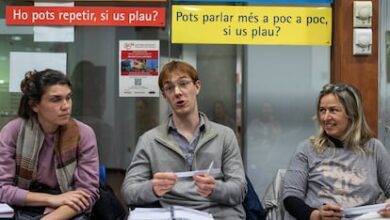
An investigation has been launched in Barcelona into potential tuberculosis transmission among workers involved in the renovation of the iconic Camp Nou stadium. After a member of the technical staff was diagnosed with the infection, specialists began tracing and testing his close contacts. Of the 23 people he interacted with, three are currently undergoing further examination. Final test results have not yet been released.
Tuberculosis is a serious disease that most commonly affects the lungs and is transmitted through airborne droplets. Symptoms include a persistent cough, fever, fatigue, and weight loss. In this case, the diagnosis was made after one of the workers developed telltale signs of the illness, which allowed for prompt treatment and isolation to begin immediately.
It is still too early to call this a full-fledged outbreak: at least two linked cases must be confirmed for that. Meanwhile, epidemiological monitoring at the site has been stepped up, and the health of other staff members is being closely watched. It is important to note that with early detection and strict adherence to antibiotic therapy, tuberculosis can be effectively treated—about 85% of patients make a full recovery within six months. However, the lengthy course of treatment often leads to interruptions, which can result in drug-resistant forms of the infection and further spread.
Control challenges and the impact of migration
The situation is further complicated by the fact that a significant number of construction workers are migrants from various countries. According to city officials, most new tuberculosis cases in Barcelona are among foreigners, particularly from Peru, Morocco, and Pakistan. The multinational workforce makes medical supervision more challenging and requires intermediaries between patients and the healthcare system.
Last year, there was already a major tuberculosis outbreak in the city, when failure to follow treatment protocols and difficult social conditions led one patient to infect more than twenty others. Resolving the situation required not only medical specialists but also the involvement of the police and judicial authorities.
Labor disputes and living conditions
Alongside the epidemiological investigation, labor disputes are erupting at the Camp Nou construction site. Recently, about fifty workers without official documentation were dismissed by contractors. Union representatives claim that the companies intend to send these workers back to their home countries without guaranteeing their rights. Catalan authorities are conducting an investigation into labor law violations, with results expected to be released in the coming weeks.
Since the start of the stadium’s renovation, ten complaints have already been filed regarding working conditions. Key issues include workers being housed in hotels outside Barcelona and attempts at mass registration of foreign employees to access medical services. The municipality of Calella refused to register about two hundred non-EU workers, citing concerns about overwhelming the local healthcare system. The construction company insists its health insurance covers all necessary costs, but stresses the importance of access to public clinics in case of emergencies.
Focus on social responsibility
The football club’s management emphasizes that it is working with contractors to comply with all regulations and protect employee rights. Nevertheless, the string of scandals surrounding the construction site continues—from violations of work schedules to disputes over the legality of hiring and housing foreign workers. Authorities and public organizations are closely monitoring the situation to prevent any further deterioration, whether in healthcare or labor relations.












